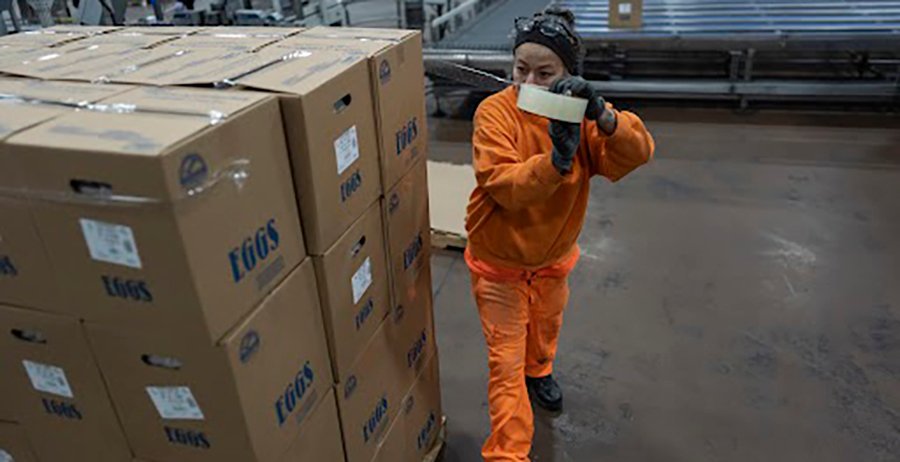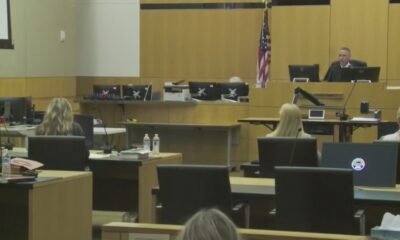Criminal justice
Is the Criminal Justice System on the Brink of Transformation?

As the new legislative session unfolds, advocates for criminal justice reform are focused on advancing a home confinement bill and enhancing oversight of the Department of Corrections, Rehabilitation and Reentry. This year, there is a renewed sense of momentum, despite previous setbacks in similar legislation.
Historical challenges in passing such laws seem to be easing, with a growing recognition among lawmakers of the inefficacy of harsh prison conditions. John Fabricius, executive director of the Praxis Initiative, emphasized that an increasing number of legislators are understanding that the current system does not promote public safety or positive rehabilitation outcomes.
Communication appears to be improving. Fabricius stated, “Discussions are becoming more manageable,” suggesting that lawmakers are displaying less visceral resistance to reform initiatives.
In recent sessions, efforts were made to establish an electronic monitoring program for low-level offenders, allowing for earlier release into home confinement. Former Sen. Steve Kaiser introduced a version of this bill in 2023, which controlled the program’s administration, but it collapsed due to a lack of fiscal planning.
Rep. Kevin Payne has now taken the lead on a revised version for 2024. The updated bill eliminates the Board of Executive Clemency from the approval process but acknowledges potential costs. It forecasts an increase of $7.2 million in FY2025 and $6.2 million in FY2027, although projected annual savings could reach $90 million within five years.
After passing key committee votes, the bill remains unassigned in the Senate, prompting advocates like Steven Scharboneau, lobbyist for Arizona Attorneys for Criminal Justice, to express optimism about bipartisan support for the measure.
Notably, some previous opponents, including Donna Hamm of Middle Ground Prison Reform, have shifted to support the bill due to its modifications. Hamm anticipates a smoother path toward potential gubernatorial approval.
Beyond the home confinement issue, a push for more thorough oversight of the Corrections Department is gaining traction. Republican Rep. Walt Blackman has indicated plans to establish an independent oversight body with dedicated staff. Proposals from Democrats in the last session echo this sentiment, aiming to create a Correctional Oversight Committee.
The drive for oversight stems from concerns about the current review processes, which some legislators found limiting. Internal reviews initiated by Corrections Director Ryan Thornell have been praised, yet critics note the absence of critical evaluations of prison conditions and overall healthcare.
Advocates stress the necessity for independent oversight, especially with a gubernatorial election in 2026 potentially shifting departmental priorities. Fabricius stated, “Without legislative oversight, the department could revert to opacity and inaccessibility.”
Lobbyist Kurt Altman highlighted a more cooperative atmosphere emerging among reformers and corrections officials, raising hopes that significant legislative advancements could occur in 2025.
Several additional criminal justice bills are already being discussed, including a measure by Rep. Selina Bliss to extend transition services and another by Payne proposing a 20% salary increase for correctional officers. Blackman also plans to focus on transition services in his upcoming proposals.
As the legislative session commences, the potential for progressive changes in criminal justice remains uncertain, but advocates remain hopeful. “Every session is challenging, but there’s room for educating newer lawmakers,” Altman remarked.
Recent political developments, such as the prosecution of local government figures, may also shift perspectives within the traditionally tough-on-crime Republican majority. Overall, there seems to be a growing appetite for sensible reforms among certain factions of the party.
Blackman confirmed this sentiment, stating that many Republicans are now seeking practical solutions rather than rigid policies. “There’s a distinct movement towards effective criminal justice reform,” he asserted.


















